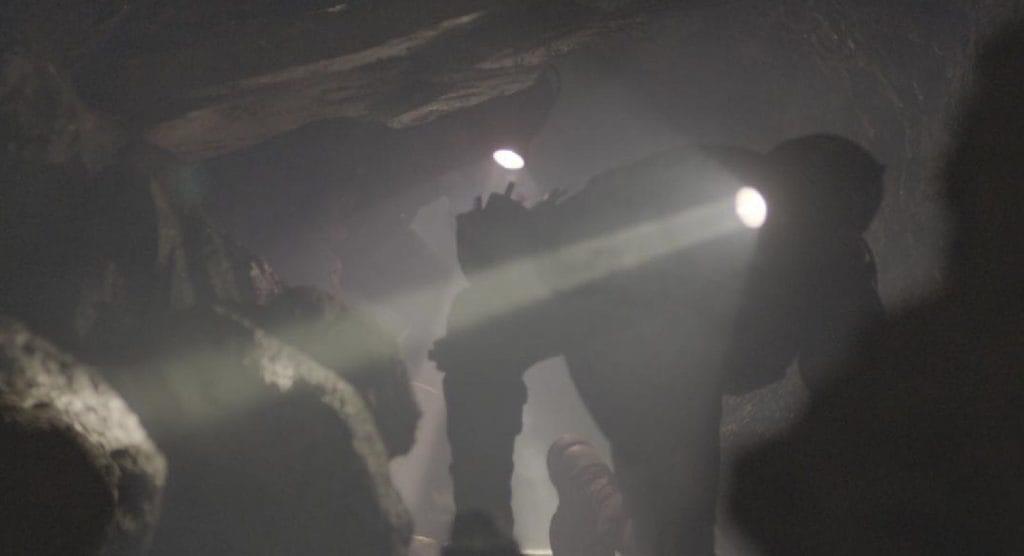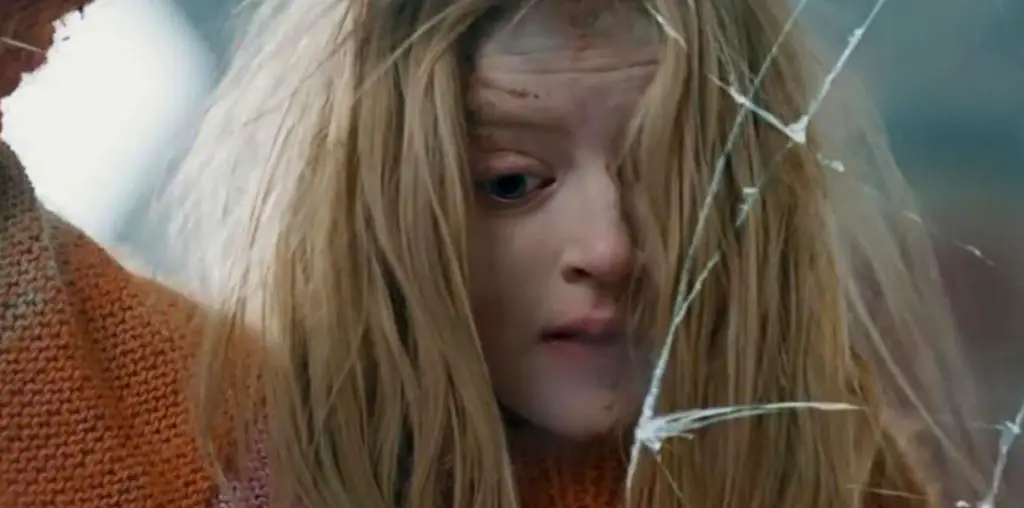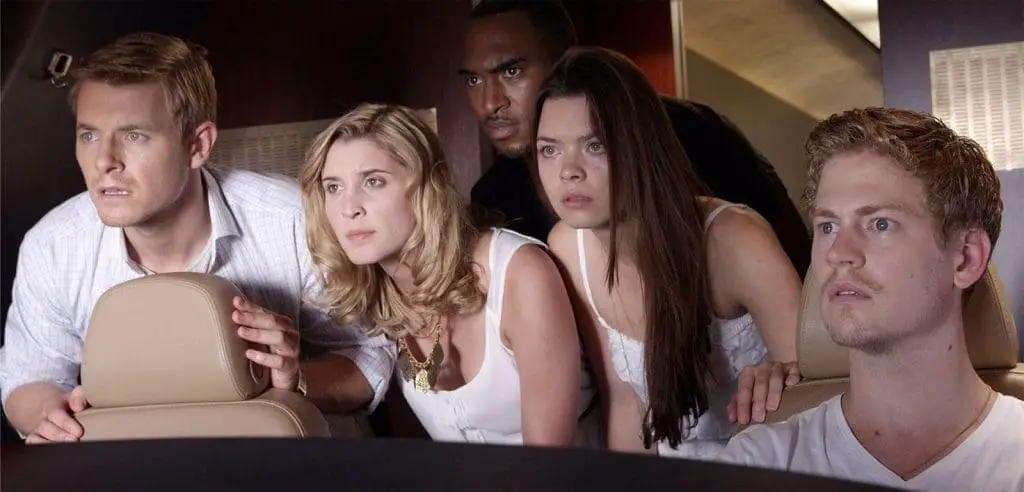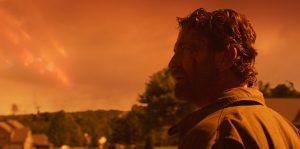
Gerard Butler is settling nicely into B-movie territory with recent titles such as Geostorm and Hunter Killer under his belt. Butler’s latest, Greenland, is cut from the same apocalypse-scenario cloth as films like Deep Impact and Armageddon. Yet, much like the former, Greenland is all dead seriousness and jettisons much of the fun that can be had out of big-screen spectacles like this.
Thankfully, Butler is allowed to keep his native Scottish accent, which avoids any potentially distracting attempt at an American one. He plays John Garrity, an Atlanta-based structural engineer, whose family is selected by the government to relocate to an underground bunker in Greenland following an impending atmospheric catastrophe. However, the road to safety is fraught with peril, as John, his wife, Allison (Morena Baccarin), and young son, Nathan (Roger Dale Floyd), must traverse the collapsing earth around them if they want to make it there.
I’m glad that Gerard Butler has found his groove with actioners like Greenland and the Mike Banning series (Olympus Has Fallen, etc.). The musical thing didn’t quite work out for him (his The Phantom of the Opera didn’t exactly light the world on fire the way that the stage musical did), and the romantic leading man thing went nowhere (although truth be told, The Ugly Truth is a guilty pleasure of mine). Butler is a handsome yet grizzled leading man, and roles like John Garrity convince us that Butler is the type of guy we want guiding us through the end of the world.
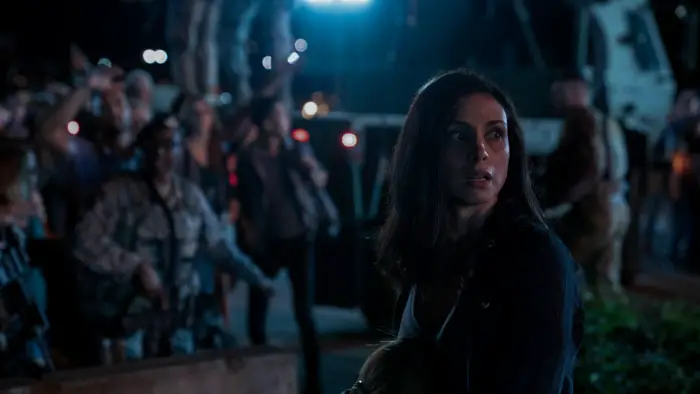
“John Garrity, an Atlanta-based structural engineer, whose family is selected by the government to relocate to an underground bunker…”
The movie has a steady and ominous build-up to the main disaster storyline, and aside from a few quiet pockets, frequent Butler collaborator, director Ric Roman Waugh, working from a script by Chris Sparling, keeps the movie racing along and always engaging as the Garritys try to beat the countdown to Armageddon. Waugh and Sparling manage to tick off most of the standard disaster movie tropes, including the stalwart leading man, the precocious and vulnerable kid (Nathan has diabetes), scenes of mass chaos and confusion, and, of course, the spectacular special effects sequences which, in movies like Greenland, are the real reason we buy a ticket.
When Michael Bay or Roland Emmerich does disaster, you know the tongue is firmly planted in cheek. In Greenland, barely a smile is seen (except in flashback), or a snide remark is heard. While it’s foundational spectacles remain, more or less, impressive, the lack of any sort of self-awareness emanating from the characters drains a lot of the entertainment value from the picture. How are we as an audience supposed to have fun at a big event-type B-movie (which is what Greenland is) if we sense that the actors (never mind the characters they are playing) aren’t? This is the same problem I had with Deep Impact.
Theorist Stephen Keane posits that disaster movies tend “to be borne out of times of crisis.” With that in mind, expect to see many more movies like this coming down the Hollywood pike onto your streaming platforms. In particular, movies that take an almost reverential view of healthcare workers and first responders and contain themes concerning government chaos, privilege, and classicism. Greenland is a decent enough addition to the disaster catalog structurally, but it’s a comfortable distance from the halls of greatness due to a lack of fun.
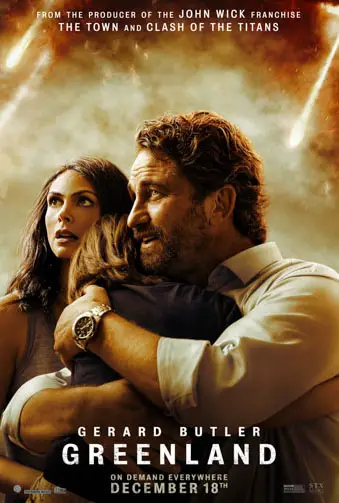
"…Butler is the type of guy we want guiding us through the end of the world."
